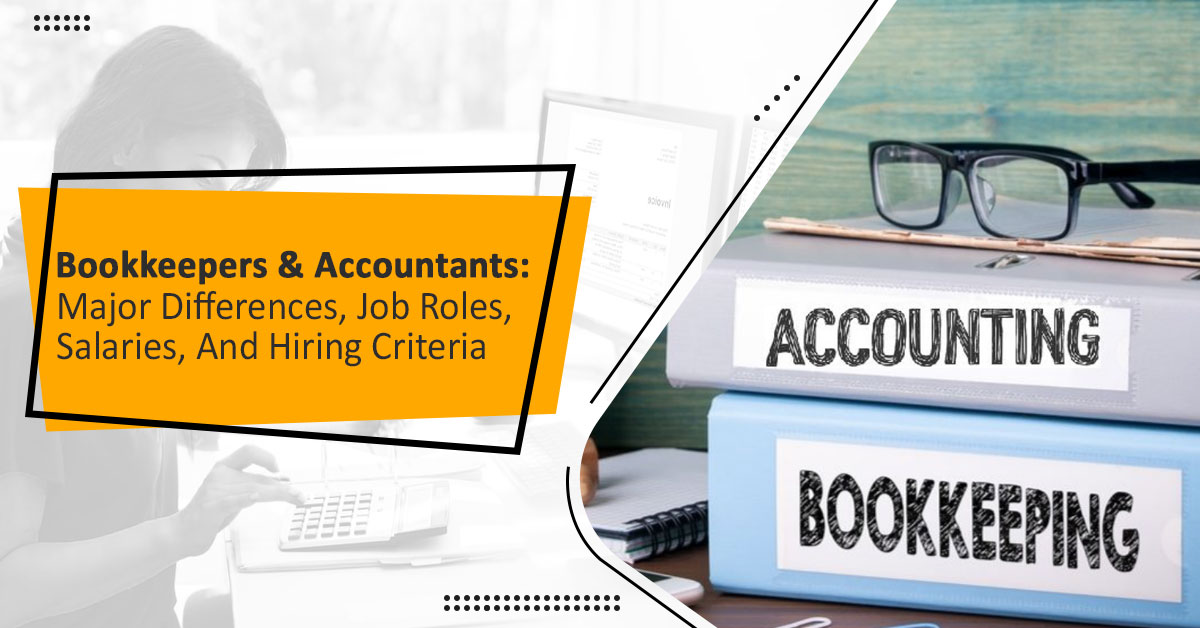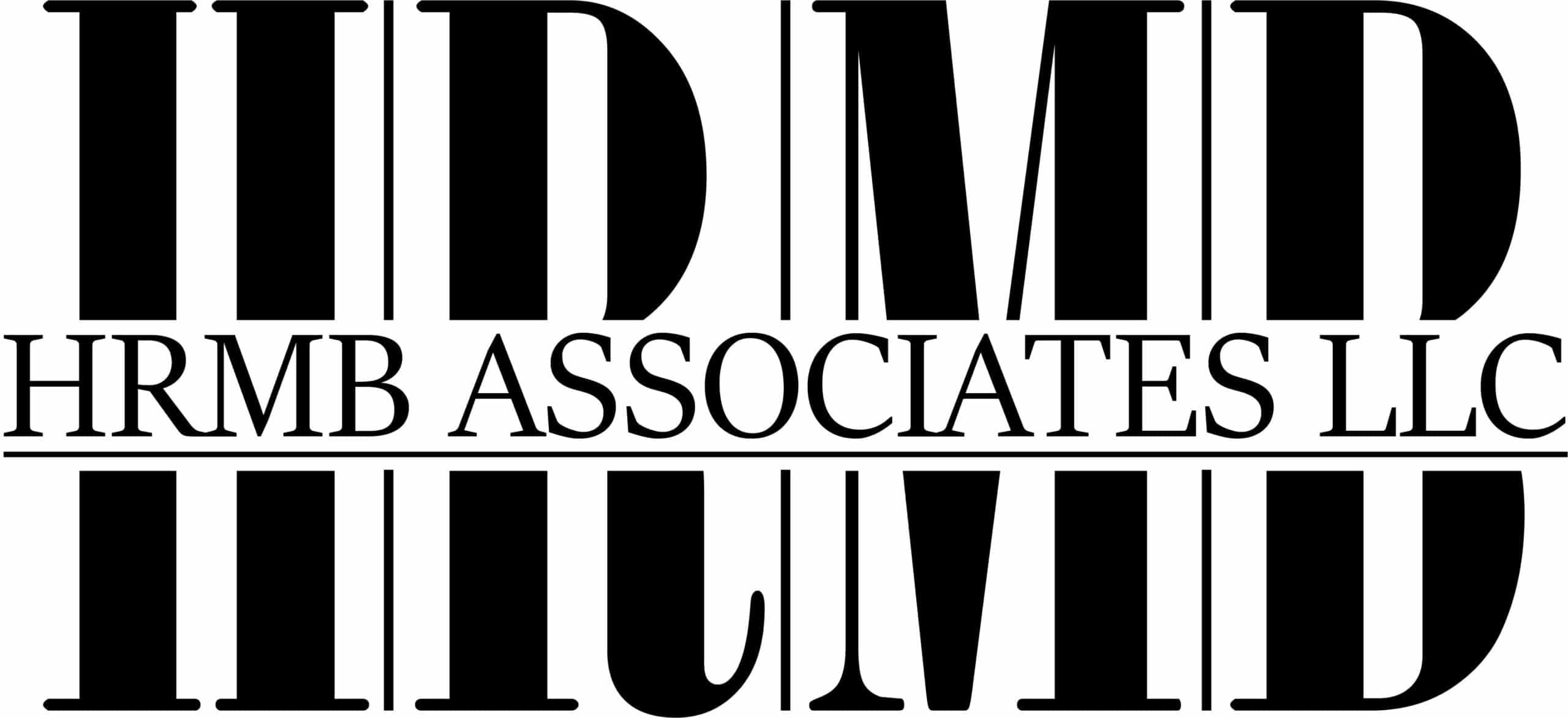Bookkeepers & Accountants: Major Differences, Job Roles, Salaries, And Hiring Criteria

While the differences between bookkeepers and accountants are few, they exist. The task of a bookkeeper is to record transactions in a journal, but an accountant’s job extends beyond it. Bookkeepers need to have great attention to detail. Accountants use the inputs from bookkeepers to form financial statements. They analyze and review the recorded information from bookkeepers. Accountants also conduct audits and predict future requirements.
Both jobs are similar, and bookkeepers and accountants often work together as both jobs require similar attributes and skills.
Let’s understand the careers of bookkeepers and accountants with their differences and similarities. The following analysis of bookkeepers vs. accountants will compare their job outlooks, education requirements, skills, and beginning salaries.
It is common for most bookkeepers to become accountants after getting certified and gaining work experience.
Differences Between Bookkeeping And Accounting
Here is the general overview of both bookkeepers and accountants: Bookkeepers work more administratively, i.e., the file and record financial transactions. However, accountants work subjectively, i.e., they use historical bookkeeping information and financial reports to assist business owners in making strategic decisions for managing finances or finding key areas of growth.
Work Of A Bookkeeper
Bookkeepers assist small business owners in keeping their accounting history and financial paperwork in check. In simple words, the primary objective is to record and maintain entries to make accounting and business management simple. The bookkeeper can have different responsibilities depending on the size and type. Some bookkeepers also handle accounting work, while others would have to deal with employee services like payroll management.
To learn more about the differences in the roles of bookkeepers and accountants, we will now discuss the job profile of an accountant.
Work Of An Accountant
The main difference between bookkeepers and accountants is that accountants use the records and documents collected by the bookkeeper. A small business accountant collects the necessary information to make financial evaluations and provide suggestions to the management. The work profile of an accountant consists of making an annual budget, tax paperwork, analyzing operating costs, etc. Bookkeepers and accountants have different jobs. Generally, accountants don’t manage bookkeeping tasks, but they work as a source of analysis for the business.
For reporting financial conditions and performance for the company, the accountant does tasks like:
- Financial transaction analysis
- Summary of business records and statements
- Financial data interpretation
- Review information
- Report economic conditions of the company
Differences In Education And Certifications
There is a considerable educational difference between bookkeepers and accountants. Bookkeepers typically have a bachelor’s degree or an associate’s degree in business. While the position requires having prior experience in office management with knowledge of financial processes, not many certifications are there for bookkeeping.
Qualified accountants typically have a bachelor’s degree in finance and accounting with some financial work experience. As mentioned, accountants can get many additional certifications for broadening their expertise. These are some common accounting certifications.
- Certified Management Accountant (CMA)
- Certified Public Accountant (CPA)
- Certified Financial Analyst (CFA)
- Certified Internal Auditor (CIA)
Salaries In Both Job Roles
Salaries of bookkeepers and accountants vary based on the state, job functions, and qualifications of the candidates. The average bookkeeper’s salary is $41,244, while an accountant’s average wage is $50,420. Accountants receive more pay than bookkeepers.
Many small firms don’t have the employment capacity to hire internally, so they look for external bookkeepers and accountants services.
Whether You Should Hire An Accountant Or Bookkeeper?
Things are quite complex if you’re managing a small business, and there are many things to take care of, like ensuring customer satisfaction, managing employees, and adjusting your personal life. With such a busy routine, it’s easy to make mistakes. Thus the dual-layer system for managing business finances is recommended, and bookkeepers & accountants make it happen. Business owners have to consider bookkeepers and accountants’ job roles to manage their finances extensively.
Without the right financial management knowledge and proper documentation, accountants won’t be able to do their job with perfection. Small firms should hire for both positions and also take a few responsibilities. Or else they can outsource bookkeepers, accountants, or financial management services from third-party agencies. They are ideal for ensuring business accuracy and high productivity.
Hiring For Accounting And Bookkeeping Services
If you’re looking for finance and organization management, you might not be able to handle accounting and bookkeeping tasks on your own. You should check all business elements when you don’t want to take these challenges. If you’re unwilling to take on these challenges with expert financial precision and approach, it’s best to outsource the duties of bookkeepers and accountants to get the tasks done at a professional level.
Related:- Top 5 Tips On Retirement Tax Planning To Ease The Process
Business owners can hire professional bookkeepers and accountants as a part of their payroll or hire a separate special team for these responsibilities. However, the method is also costly when you add up the costs of including the person on the company’s payroll with additional onboarding and hiring costs.
Salaries And Benefits
Both these careers, particularly accounting, have varying starting salaries. How much compensation you would get would depend on the career path. As accounting is a long-term career, most accountants don’t get lucrative salaries in the starting years, unlike investment bankers or corporate attorneys.
The candidate who pursued Public accounting gets the highest salary after getting out of college.
Payment of bookkeepers is on an hourly basis. People who just started in the business are paid around $20 per hour. It is equivalent to approximately $40,000 annually, assuming you’re working 40 hours per week.
The benefit of hourly pay is that you get paid 1.5 times more than your average wage for hours worked up to 40 per week. In bookkeeping, it’s normal to have extra hours during the busy tax season from January to mid-April.
Special Considerations
For long-term career growth, it’s best to have more avenues open, and accounting has more growth prospects with better income potential. Higher education is necessary to succeed in this field, and the payoff on your career path also increases.
Otherwise, you can start with bookkeeping. A bookkeeping job is ideal if you’re interested in the field but are not committed to it. A perfect candidate for bookkeeping wants to have a good job with decent security and respectable wages but doesn’t want to pursue it as a long-term career.
Anyone can easily get bookkeeping jobs with less competition.
What Credentials Does the Bookkeeper Need?
Bookkeepers don’t need to have certification for managing the employer and customer books, but there are certain licenses that they can obtain. The National Association of Certified Public Bookkeepers (NACPB) and the American Institute of Professional Bookkeepers (NACPB) provide licenses and accreditation to bookkeepers.
To get AIPB accreditation, bookkeepers must have at least two years of full-time job experience and pass their national exam. To hold the credential, bookkeepers must continue their education.
The NACPB has credentials for bookkeepers who passed tests and worked in financial management, payroll, or bookkeeping.
For earning the certified bookkeeper license, they should have at least 2,000 hours of experience and pass a test. They take 24 hours of education annually to hold their work license. Bookkeepers with professional certification show that they’re committed to the trade and have the required expertise and skills. They are always eager to continue with new techniques and methods.
Credentials Of An Accountant
The qualification of an accountant is based on their licenses, certifications, and experiences. They earn a bachelor’s degree from an accredited university or college to be an accountant.
Accountants obtain various bookkeepers and accountants certifications for expanding their skills and closing job positions with larger companies. Other common designations are certified internal auditor (CIA), chartered financial analyst (CFA), and Certified Public Accountant (CPA).
CPA – Certified Public Accountants (CPA) meet their state’s accounting requirements after passing the CPA exam. Hiring managers must look for an accountant who is well versed in accounting and tax law software with good communication skills.
CFA – The CFA Institute awards this credential. The CFA (Chartered Financial Analyst) is among the most respected accounting designations globally. CFA accountants learn about ethical financial practices, global markets, investment analysis, portfolio management, etc.
Accountants should have relevant four years of work experience to be certified as a CFA.
CIA credentials – CIA specializes in internal audits. An accountant needs to pass the exams with two years of professional experience. CPAs perform many services of the CIA. Managers must hire a CIA if concerned about security monitoring processes and financial risk assessment.
Conclusion
The business manager has to detect the accounting requirements of the firm to help them finalize whether they want the services of bookkeepers and accountants. Firms that are still confused about whether to hire bookkeepers and accountants can opt for external auditing and bookkeeping services of HRMB Associates. HRMB Associates’ professionals boast ample experience and knowledge about bookkeeping and offer the necessary support for your company’s accounting and financial requirements. HRMB Associates LLC utilizes the most updated processes for data transmission in industries like FTP bookkeeping, specialized reports, and application service providers.
We offer the mixed expertise of skilled accounting professionals and updated accounting software like QuickBooks, Quicken, Sage Accounting, Peachtree, etc. HRMB works with a passionate team of experienced and well-trained professionals who can easily adapt to clients’ specified processes to ensure their accounting needs are met.
Businesses rapidly change, and regulations for keeping the enterprises stable like taxation and licensing need quality financial accounting services. Trustworthy and transparent financial statements are necessary for the dealings of financing institutions and partners. Thus, businesses would be able to deploy the right professional to the right job role with these differences between bookkeepers vs. accountants.


